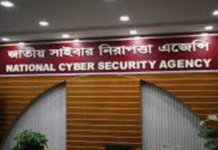The four state-owned banks have made a new record for default loans with a rise in bad loan of Tk 110 billion in a single year 2016.
Now, the total amount of default loans of Janata Bank, Agrani Bank, Sonali Bank and Rupali Bank increased to Tk 264.86 billion, according to their annual reports.
The abnormal rise in default loans has been attributed mainly to emergence of new loan defaulters and non-repayment of loans by some big fish as well as Bangladesh Bank’s stricter rules in this regard.
Janata Bank tops the chart, followed in order by Agrani Bank, Sonali Bank and Rupali Bank.
As many as 446 branches of these banks also recorded losses during the period, giving rise to number.
Economists and bankers said there have perfunctory regulatory systems and most of the cases loans were given on political considerations.
Professor of economics at Chittagong University, and former director general of the Bangladesh Institute of Bank Management (BIBM), Moinul Islam told Prothom Alo that the banks are still disbursing loans to defaulters to recover the old loans. “This is an age-old practice of the banks. Political will is important to halt this practice,” he added.
The present government, however, apparently has no intention of stopping this and neither did the previous governments, he regretted.
Moinul Islam said loan defaulters were not being punished as the bankruptcy court is out of commission. “This encourages people to be defaulters.”
The bank authorities said old loan recovery was quite impossible now as the loans were distributed on political consideration.
Bangladesh Bank’s former deputy governor Khandakar Ibrahim Khaled said the former managing directors of the three banks — Sonali Bank, Rupali Bank and Agrani Bank — were “in no way good men”. “They were the ones who sanctioned these loans.”
“Later, the government rescheduled the loans. The finance ministry’s financial institutions division is responsible for this,” he added.
Pradeep Kumar Dutta was managing director of the scandal-hit Sonali Bank while M Fariduddin and Syed Abdul Hamid were managing directors of the Rupali Bank and Agrani Bank respectively.
Among them, Syed Abdul Hamid, who was absconding in a case filed by Anti-Corruption Commission, was removed by Bangladesh Bank on his last day in office.
The other two MDs remained in the posts for long despite the controversies over disbursement of those loans.
Sonali Bank
According a financial report, default loans of the bank fell by Tk 12.85 billion in the year of 2016. Despite the recovery, the bank recorded new default loans of Tk 28.50 billion in the year.
Managing director of the bank Obaid Ullah Al Masud told Prothom Alo that the defaulters who were facing legal proceedings were shown as scheduled ones. Now they have been projected as defaulters as per Bangladesh Bank directives, he pointed out. As a result, Tk 11 billion default loans had increased in the past year.
Also, a fresh Tk 14 billion has been added to the default list in the past year, he added.
Agrani Bank
The bank recorded Tk 31.17 billion in new default loans in the past year and Tk 9.53 billion was realised at the same time.
According to Agrani Bank sources, Advance Compositor defaulted Tk 1.48 billion while Zakia Cotton Tk 1.16 billion, Suruj Mia Group Tk 500 million, Ifti Fashion Tk 500 million, MR Sweater Tk 1.10 billion, Julia Sweater Tk 850 million, Aristocrat Tk 1.10 billion, Marhaba Spinning Tk 1.21 billion, and Saad Musa Tk 900 million.
Agrani Bank MD Shams-ul-Islam said some of the customers became defaulters last year, while some loans have been rescheduled.
Janata Bank
In 2016, Janata Bank recovered Tk 6.40 billion of default loans, but a fresh Tk 33.37 billion default loan was added to the amount.
Janata Bank MD Abdus Salam said, “Bangladesh Bank has enlisted some customers as defaulters in view of their repayment quality. In addition, some big loans that were taken have become defaulted too.”
“We are trying to reduce the default amount.”
Rupali Bank
In 2016, the bank has recorded Tk 20.98 billion afresh in default loans.
Rupali Bank MD Ataur Rahman Pradhan said some defaulters, who were out of the default list, have been included on the list as per the central bank directives. Except this, some new defaulters increased the total.
Overall situation
The state-owned banks are now facing shortage of capital due to the huge volume of default loans.
The government had to inject into the banks capital of nearly Tk 80 billion, all the taxpayers’ money.
Economist Moinul Islam said the banks are concealing the actual amount of default loans through write-offs.
Over the past 15 years, the banks failed to collect even 5 per cent of the loans.
Source: Prothom Alo









